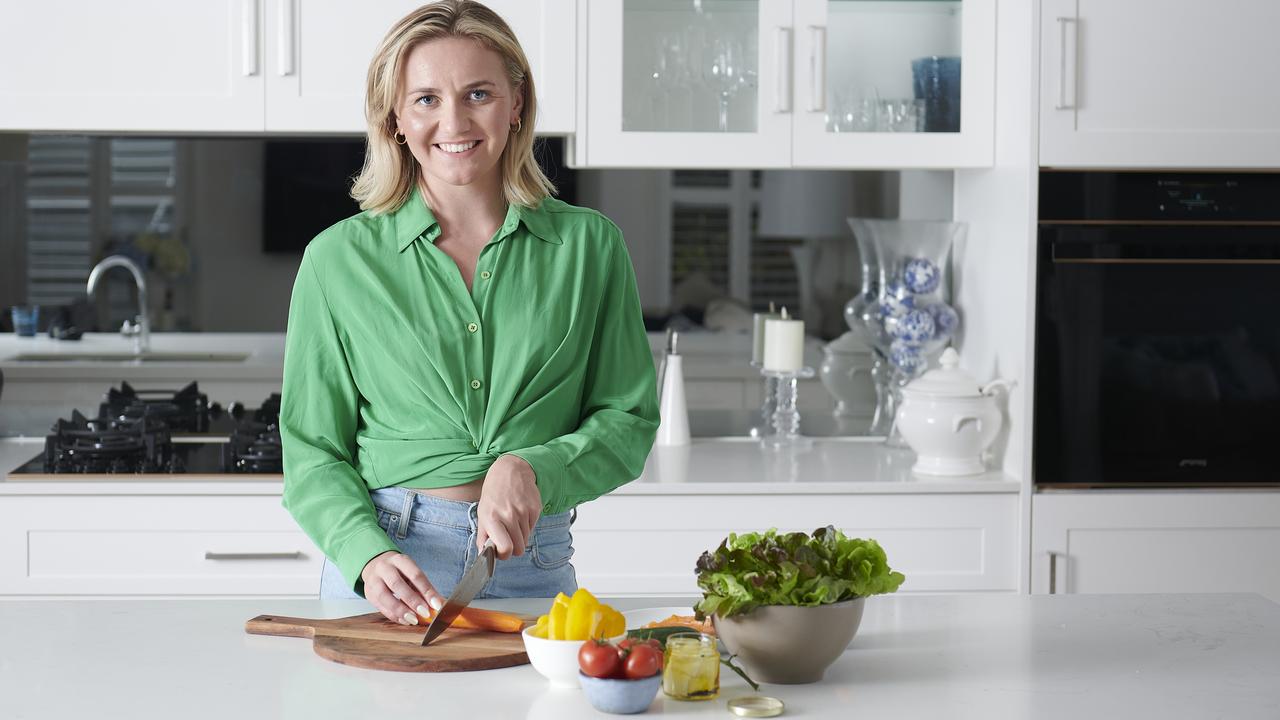Why Olympic star Ariarne Titmus must watch what she eats everyday
Olympic swimming star Ariarne Titmus reveals the health battle that has thrown her training and travelling routines into chaos.
When Ariarne Titmus returned home from the 2017 World Championships in Hungary, something was badly wrong with her gut.
The champion swimmer and world record holder had a parasite that caused her to lose 5kg in two weeks, but after consulting a dietitian and following a food elimination diet, another problem was revealed.
“Gluten causes me issues,” says Titmus.
“The tiniest little bit in my diet causes a massive flare-up in my gut.”
Gluten is a protein found in wheat, rye, barley and oats, and everyday foods including bread, pasta, cereal, and biscuits, but it can also be present in sausages, beer, some soy milk, and even lollies.
And if you’re sensitive to gluten, it can cause symptoms including abdominal pain, diarrhoea, bloating and wind, as well as lethargy, poor concentration, and general aches and pains.

Titmus, 22, is one of more than 6.68 million Australians who avoid consuming gluten or wheat for reasons including sensitivity.
However, Associate Professor Jason Tye-Din, a gastroenterologist and chair of the Medical Advisory Committee of Coeliac Australia, says it’s important not to confuse sensitivity with coeliac disease, a serious medical condition affecting about one in 70 Australians.
“Non-coeliac gluten-sensitivity is defined by feeling unwell after eating gluten or wheat-containing foods, however, a person feels better when they take it out of their diet,” he says. “In contrast, coeliac disease is caused by the immune system reacting adversely to gluten in the diet. It triggers an abnormal immune response that damages the bowel, and it can also affect other parts of the body with other symptoms and cause serious health problems.”
Tye-Din says diagnosing gluten sensitivity is difficult. It involves eliminating coeliac disease and other allergies and medical conditions.
“There’s a big focus on excluding coeliac initially because, if a person continues to consume gluten, they will be at a higher risk of other health problems including osteoporosis and even some forms of cancer,” he says.


Dr Kim Faulkner-Hogg, an Advanced Accredited Practising Dietitian and specialist in coeliac disease, says that following a gluten-free diet is challenging and accidental consumption of gluten is common.
“Ordering a gluten-free meal in a restaurant doesn’t always guarantee it is free from cross-contamination,” she explains. “In a busy kitchen, it’s easy to misread a food label, or have small amounts of gluten make its way into an otherwise gluten-free dish.”
She says that the resulting symptoms can be “disruptive” and linger for days.
“People opt out of social events or holidays due to the fear of being impacted by gluten,” she says. “This can lead to social isolation, anxiety, and a reduced emotional quality of life.”
Since her diagnosis in 2017, Titmus has followed a strict gluten-free diet, although it makes training and travelling complicated.
“Many places where we train or race don’t accommodate people with gluten sensitivities,” she says. “The Australian team managers and nutritionists have to buy me food to make sure I am eating the right foods, which sometimes can be limited.”
She also worries about accidental gluten ingestion upsetting her chances of winning.
“I try to be as routine as possible with my diet in the lead-up to major events by eating the same thing,” says Titmus. “With every meal, I make sure that nothing’s going in that’s going to change my digestion.”
Titmus is an ambassador for GluteGuard, a supplement that breaks down “hidden” gluten in food and eases the symptoms of accidental ingestion in people with medically-diagnosed gluten sensitivity. She heard about it from a fellow swimmer while travelling in France.
“One of the boys said that his mum takes it before meals if she’s going to a restaurant in case she accidentally eats gluten,” she says. “Knowing there’s a product that can help to manage your diet is very reassuring, not just if you’re competing or have a big event coming up, but also day-to-day activities as well.”
More Coverage
Originally published as Why Olympic star Ariarne Titmus must watch what she eats everyday




